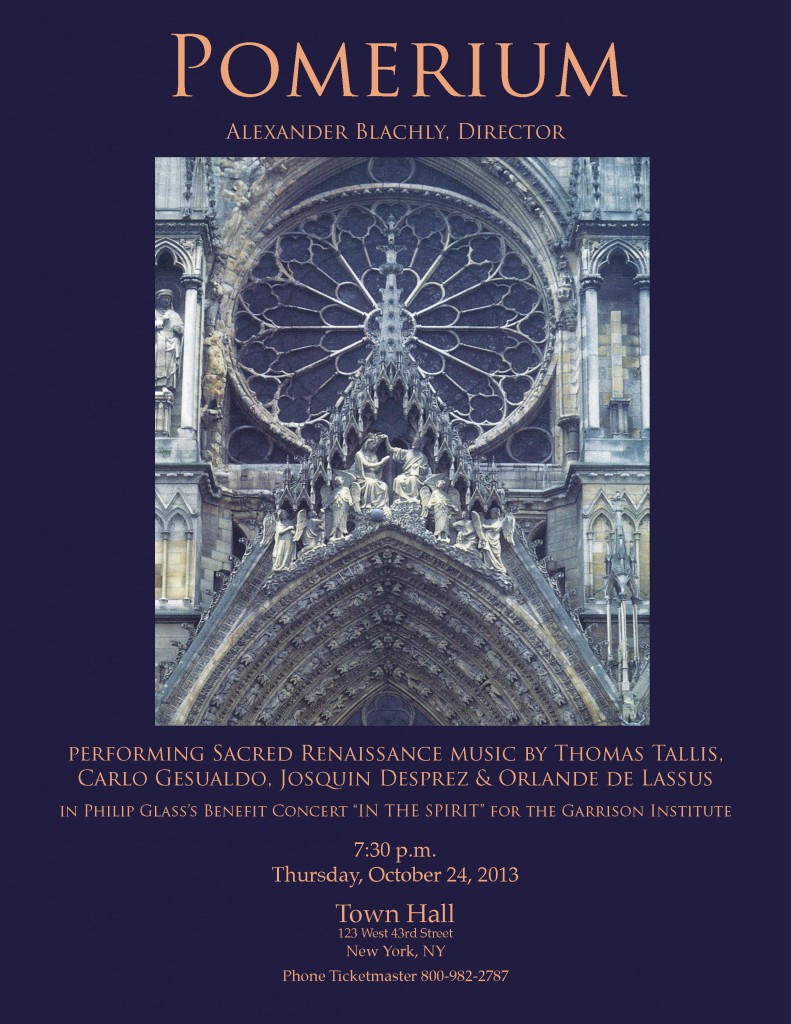October 24, 2013
In the Spirit
| O vos omnes
In ieiunio et fletu Ave Maria Derelinquit impius Vide homo |
Carlo Gesualdo (1566-1613)
Thomas Tallis (ca. 1505-1585) Josquin Desprez (ca. 1452-1521) Thomas Tallis Orlande de Lassus (1532-1594) |
Pomerium
Elizabeth Baber, Martha Cluver, Michele Kennedy, Dominique Surh – sopranos
Luthien Brackett – mezzo-soprano
Robert Isaacs – countertenor
Thom Baker, Neil Farrell, Michael Steinberger – tenors
Jeffrey Johnson, Thomas McCargar – baritones
Kurt-Owen Richards, Peter Stewart – basses
Commentary on the Programby Alexander Blachly Josquin’s Ave Maria heard tonight, with its calm, flowing counterpoint, he can be seen as a forerunner of Palestrina and the Counter-Reformation. Three other composers in Pomerium’s selection tonight were exponents of a different branch of the Counter-Reformation, in which highly dramatic art and music sought to convey personal devotion to Christ: Englishman Thomas Tallis; the Italian Carlo Gesualdo, prince of Venosa; and Orlande de Lassus from modern-day Belgium, who spent his adult career in Munich. Gesualdo was the most radically chromatic of any composer of the Renaissance, as heard in his searing evocations of Christ’s last days in O vos omnes. Tallis’s harmonic language in such late works as In ieiunio et fletu and Derelinquit impius from the 1570s responded to the winds of harmonic change sweeping Europe, setting “safe” Old Testament texts while conveying a hidden message to which all Catholics in Protestant England could relate: the suffering of an oppressed people. Lassus’s seven-voice Vide homo from 1594 is his final work. The Latin text expresses Christ’s sorrow as he surveys mankind with disappointment from the cross, yet the setting seems to transform the message from reproach to forgiveness. |
